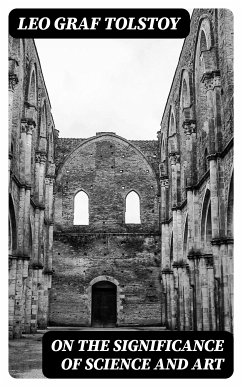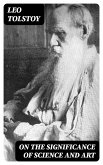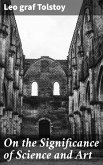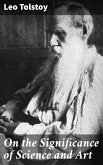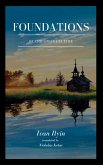In "On the Significance of Science and Art," Leo Tolstoy delves into the intricate relationship between these two disciplines and their roles in contributing to the moral and spiritual development of humanity. Set against the backdrop of the 19th-century intellectual landscape, Tolstoy's work is characterized by its profound philosophical insights and an unyielding quest for authenticity. Employing a compelling and accessible prose style, he critiques both the scientific and artistic communities, cautioning against the potential detachment from ethical considerations and true human connection that can arise from their pursuits. His exploration reveals a deep concern for the social responsibilities of artists and scientists alike, emphasizing their potential to inspire empathy and foster collective well-being. Tolstoy, a towering figure in Russian literature, drew from his own experiences as a novelist, philosopher, and social reformer. His life-marked by a search for meaning and a tumultuous struggle with societal norms-shaped his worldview profoundly. His commitment to humanitarian values and critique of modernity permeates this work, linking artistic expression with a moral imperative to enrich human existence and promote understanding. Readers seeking a thought-provoking examination of the intersections between science, art, and morality will find "On the Significance of Science and Art" an essential addition to their literary repertoire. Tolstoy's incisive arguments resonate with contemporary concerns, making the text not only relevant but also a brilliant catalyst for discussions about the roles of creativity and intellect in society.
Dieser Download kann aus rechtlichen Gründen nur mit Rechnungsadresse in A, B, BG, CY, CZ, D, DK, EW, E, FIN, F, GR, H, IRL, I, LT, L, LR, M, NL, PL, P, R, S, SLO, SK ausgeliefert werden.

